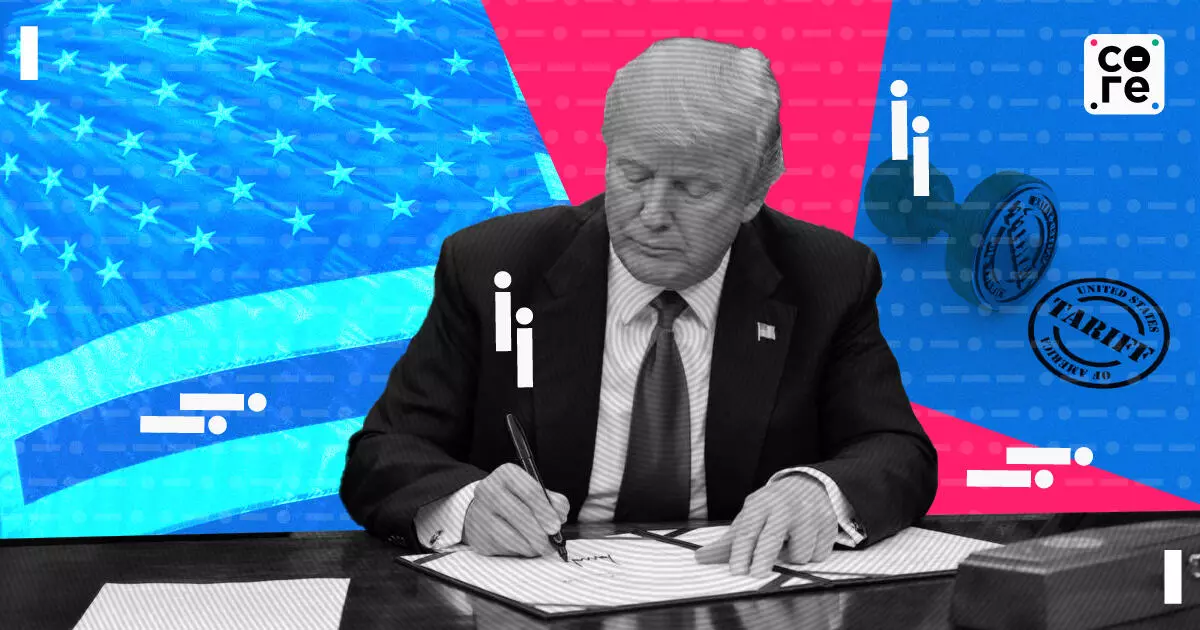
Has Donald Trump Changed In 4 Years? His Tariff Threats May Have The Answer
Trump's presidency begins with domestic focus, mixed economic signals, tactical retreats, China scrutiny, market uncertainty, and contradictions to campaign rhetoric.

Were you the same person four years ago? This was the response to a question on what could potentially change for the financial markets with the new Donald Trump presidency that took charge last night in freezing Washington DC.
My poser was to a Dalal Street money manager who is programmed to look at the positive side of things. Combine that with some experience and a few market cycles and you have a good chance of landing close, if not on target.
As we stand a day after the inauguration, Trump has already unleashed a series of executive orders predominantly focused on America’s internal and cultural issues. The key economic threats are still in abeyance, but that’s not helping anyone.
A useful and quick analysis from Axis Capital says nearly four-fifths of president Trump’s first 45 executive orders focus on appointments, cultural issues like freedom of speech, diversity, equity and inclusion (DEI) and changes in processes, including rescinding 78 executive actions taken 2021-25.
What about the ones with economic impact? They include immigration, energy, and pulling out of multilateral forums like the global tax deal, the World Health Organization and the Paris Agreement on climate change. In many ways, these changes were expected but may not have been on everyone’s mind as did tariff threats in the last few months.
Day 1 Of Trump
The key economic threat that has kept global economies guessing is the sweeping tariffs on all countries including India. There already is a tactical retreat saying they will study it and then take action. There is a renewed threat of 25% tariffs on Canada and Mexico to nudge them to stop the flow of undocumented migrants, of which India is a healthy contributor at this point.
He has promised sweeping tariffs, annexation of foreign lands and deals with whoever is willing to strike them.
But who could have guessed that the first deal would be to breathe life into a Chinese social media platform suspected of stealing data from American users and banned on grounds of being a national security risk?
Incidentally, last month it was revealed by the Wall Street Journal that the US government was taking aim at TP-Link, a Chinese technology company that dominates the home and small-business router market in the US, amid mounting national security concerns.
TP-Link apparently holds a 65% market share and federal authorities were investigating them amid reports of its routers being exploited in cyberattacks allegedly linked to Chinese state actors according to media reports.
A recent Microsoft report said compromised TP-Link devices were used in ransomware operations, fueling concerns about the company’s role in facilitating cyber threats.
The bottom line is that the hardware and software that dominate America are controlled by China in more ways than one. And it looks like it will broadly stay that way for now. This by the way is the opposite of what you would have heard on the campaign trails.
Tactical Retreats
So which promise will the Trump administration hold? As mentioned earlier, there are already tactical retreats.
Since Tiktok has got a reprieve, though temporary, to allow them to find a 50% American owner, then it's quite likely other areas like tariffs are also on some kind of hold, at least in the case of and on China.
If that is the case with China, then what sense does it make to slap tariffs on India? Then, almost everything, except for perhaps illegal immigration, on which some dramatic measures have been announced, is open to negotiation.
With Trump confidant Elon Musk — the owner of the automaker Tesla and space tech company SpaceX — batting for H1B visas, it is likely the regime could actually be relaxed instead of being jettisoned !
Illegal immigrants will be hounded for sure. But businesses need them too, the only problem being these businesses are more traditional service and manufacturing industries rather than rocket-launching enterprises. So maybe they won’t have a voice.
Finally, what about the stock markets that have been on the tenterhooks gearing for a major global trade war which does not look like it will happen, at least not in the way it was threatened a month ago?
Well, it's all priced in, said this money manager. This is true but what has been priced in is a definitive move and not uncertainty which is what roiled Indian markets on Tuesday.
Markets like definitive moves in any direction and not uncertainty which is what Trump has reintroduced now by staying silent on tariffs. As a businessman, the American president should know better.
And perhaps therein lies the answer to the question. Has he changed in the last four years?
Trump's presidency begins with domestic focus, mixed economic signals, tactical retreats, China scrutiny, market uncertainty, and contradictions to campaign rhetoric.
Zinal Dedhia is a special correspondent covering India’s aviation, logistics, shipping, and e-commerce sectors. She holds a master’s degree from Nottingham Trent University, UK. Outside the newsroom, she loves exploring new places and experimenting in the kitchen.

